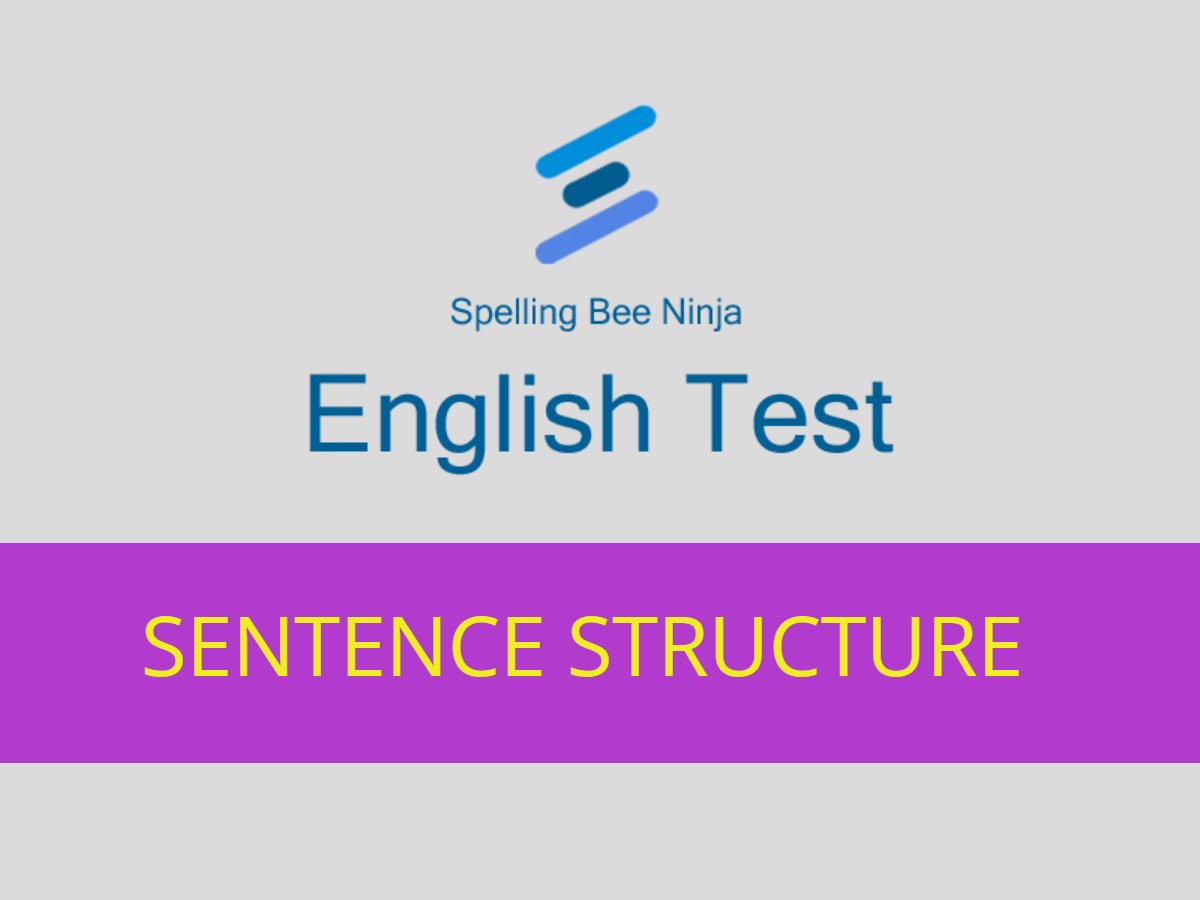- 🎓 English Test – Parts of Speech
- 🎓 English Test – The Future Perfect Continuous Tense in English
- 🎓 English Test – Pronouns in English
- 🎓 English Test – Sentence Structure
- 🎓 English Test – Future Perfect Tense
- 🎓 English Test – Future Continuous Tense
- 🎓 English Test – Future Simple Tense
- 🎓 English Test – Past Perfect Continuous Tense
- 🎓 English Test – Past Perfect Tense
- 🎓 English Test – Past Continuous Tense
- 🎓 English Test – Present Simple Tense
- 🎓 English Test – Past Simple Tense
- 🎓 English Test – Present Perfect Continuous Tense
- 🎓 English Test – Present Perfect Tense
- 🎓 English Test – Present Continuous Tense
- 🎓 English Test – The 12 Tenses in the English Language
- 🎓 English Test – Modal Verbs
- 🎓 English Test – Could, should and ought
- 🎓 English Test – Will vs Shall
- 🎓 English Test – What vs Which
- 🎓 English Test – Suffixes
- 🎓 English Test – Prefixes
- 🎓 English Test – Pronunciation
- 🎓 English Test – Misspelled Words
- 🎓 English Test – Writing an Essay
- 🎓 English Test – Writing an Email
- 🎓 English Test – Idiomatic Expressions
- 🎓 English Test – Business English
- 🎓 English Test – Writing a Letter
- 🎓 English Test – Writing Numbers
- 🎓 English Test – Adjectives
- 🎓 English Test – ESL Vocabulary Essentials – Intermediate
- 🎓 English Test – ESL Vocabulary Essentials – Advanced
- 🎓 English Test – Formal vs. Informal Language
- 🎓 English Test – ESL Vocabulary Essentials – Beginner
- 🎓 English Test – English Fluency Check
- 🎓 English Test – Mastering Imperatives in English
- 🎓 English Test – Cultural Awareness
- 🎓 English Test – Difficult Words
- 🎓 English Test – Comparative and Superlative Adjectives
- 🎓 English Test – Types of Phrases
- 🎓 English Test – Conditionals
- 🎓 English Test – Types of Adverbs
- 🎓 English Test – Clauses
- 🎓 English Test – Homophones
- 🎓 English Test – Possessives
- 🎓 English Test – Noun Types
- 🎓 English Test – Gerunds and Infinitives
- 🎓 English Test – Question Formation in English
- 🎓 English Test – Understanding Common Sentence Errors
- 🎓 English Test – Direct and Indirect Speech
- 🎓 English Test – Conjunction Words
- 🎓 English Test – Tricky Words
- 🎓 English Test – Prepositions
- 🎓 English Test – Adverbs
- 🎓 English Test – Active and Passive Voice
- 🎓 English Test – How to use Punctuation
- 🎓 English Test – An overview of English tenses
- 🎓 English Test – How to use Articles in English
Writing effectively requires more than just vocabulary and grammar; it also demands a strong grasp of sentence structure. The way sentences are constructed impacts readability, clarity, and engagement. Whether you’re writing an academic essay, a business report, or a creative piece, knowing how to use different sentence structures appropriately can make a significant difference in how your message is received.
This quiz is designed to test your understanding of the four primary sentence structures: simple, compound, complex, and compound-complex sentences. Each of these sentence types plays a unique role in communication, and mastering their use will help you craft well-balanced, engaging, and effective writing.
A simple sentence consists of just one independent clause, making it clear and straightforward. Simple sentences are useful for stating facts or making direct points. However, relying too much on simple sentences can make writing feel choppy or unsophisticated.
A compound sentence connects two or more independent clauses using coordinating conjunctions (such as for, and, nor, but, or, yet, so—often remembered by the acronym FANBOYS) or a semicolon. These sentences allow writers to show relationships between ideas without making the text overly complex.
A complex sentence includes one independent clause and at least one dependent (subordinate) clause. This structure helps express relationships such as cause and effect, conditions, or additional details. By using subordinating conjunctions (such as because, although, since, while, if, unless), complex sentences add depth and nuance to writing.
A compound-complex sentence combines elements of both compound and complex sentences. It contains at least two independent clauses and one or more dependent clauses, making it the most advanced type of sentence structure. These sentences are particularly useful in academic or professional writing, where ideas need to be developed thoroughly.
Understanding how to use these different sentence structures is crucial because it affects the rhythm, clarity, and impact of writing. If a passage is filled with only simple sentences, it might come across as monotonous or underdeveloped. On the other hand, if every sentence is compound-complex, the writing can become difficult to follow. Striking a balance between sentence types allows for a more engaging and dynamic writing style.
Sentence Structure Quiz
This quiz will test your ability to identify, analyze, and apply different sentence structures in writing. Each question presents a sentence or concept related to sentence structure, and your task is to select the correct answer from four options. Only one answer is correct per question. After completing the quiz, you’ll find explanations for each answer, helping you understand why certain sentence structures work best in specific contexts.
Before beginning the quiz, you may find it helpful to review the full article on sentence structure: Sentence Structure: Simple, Compound, Complex, and Compound-Complex Sentences. This article provides clear definitions, examples, and explanations of each sentence type.
Take your time, read each question carefully, and test your knowledge. Let’s see how well you understand sentence structures!



